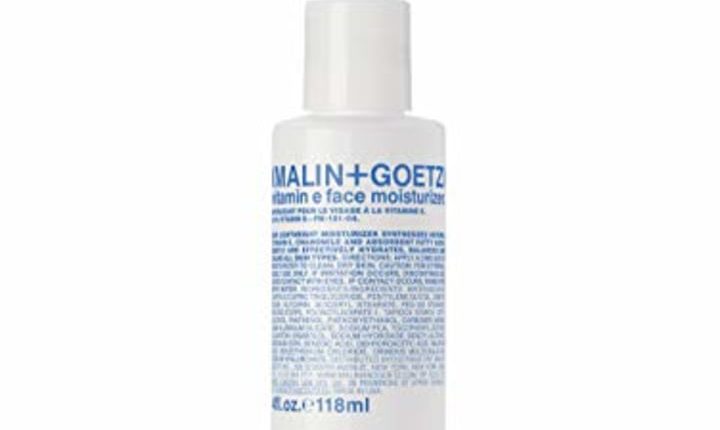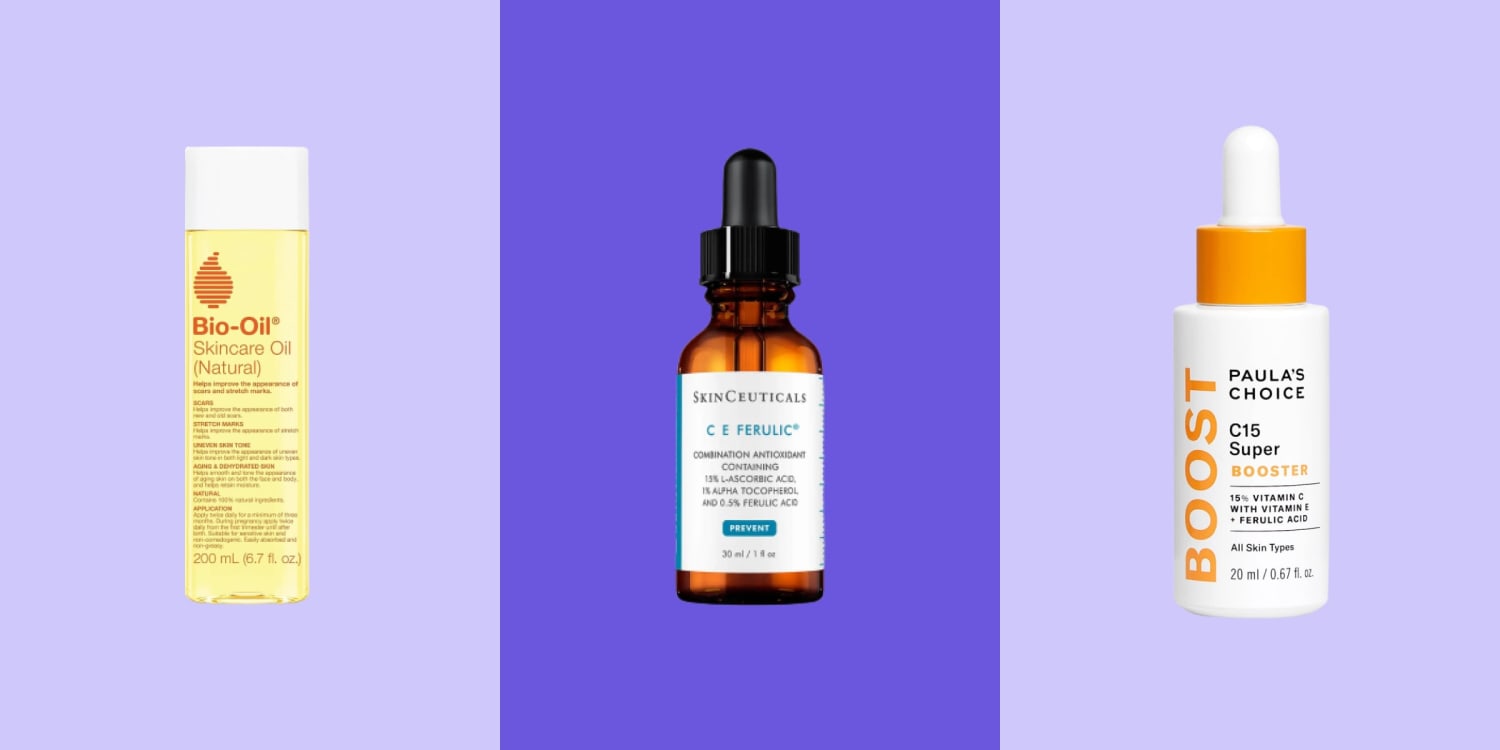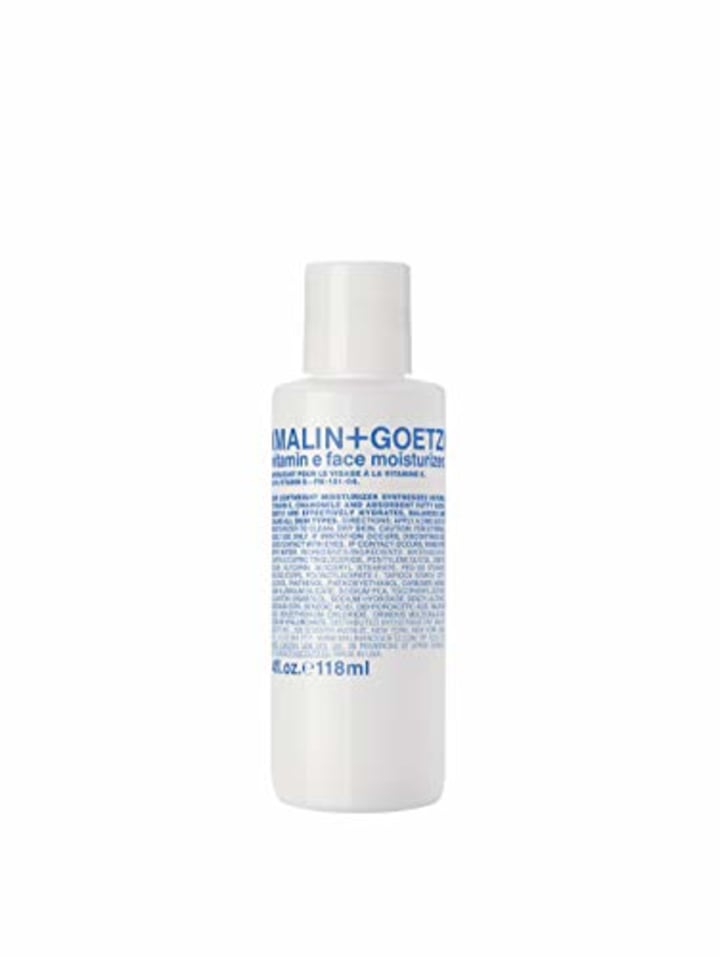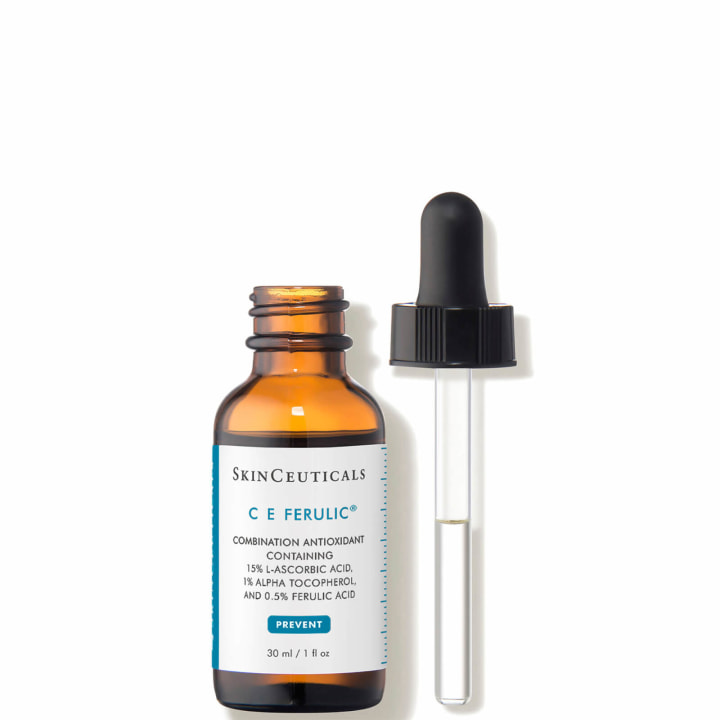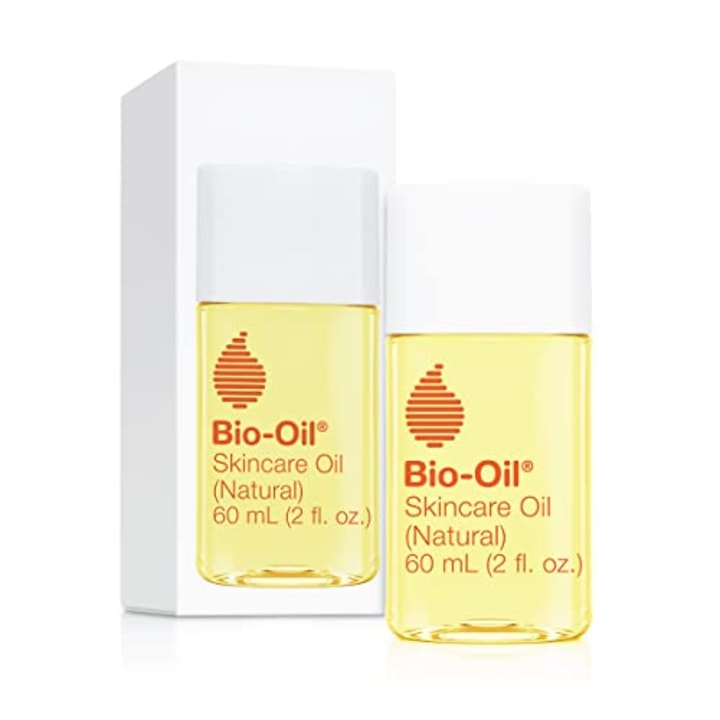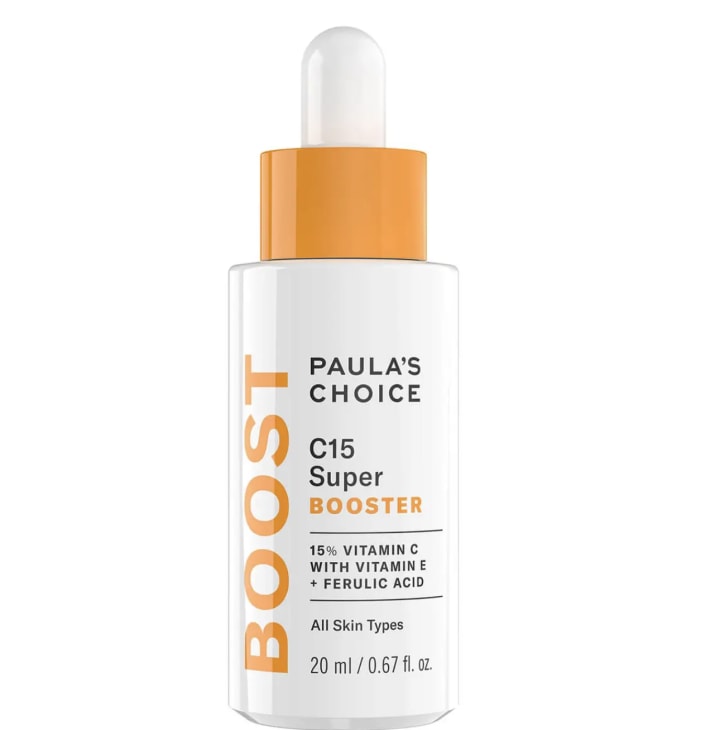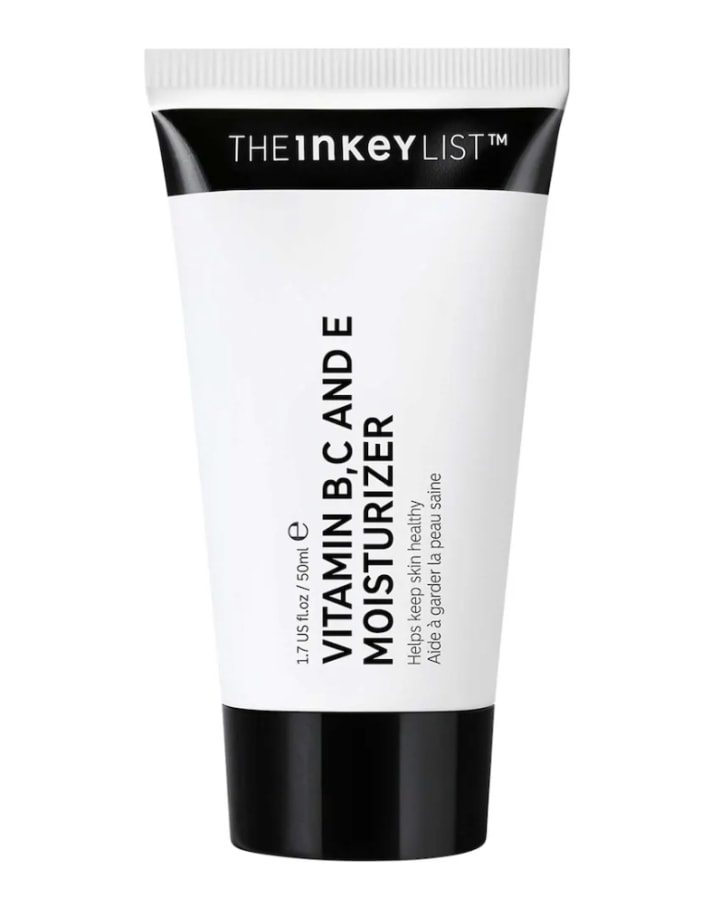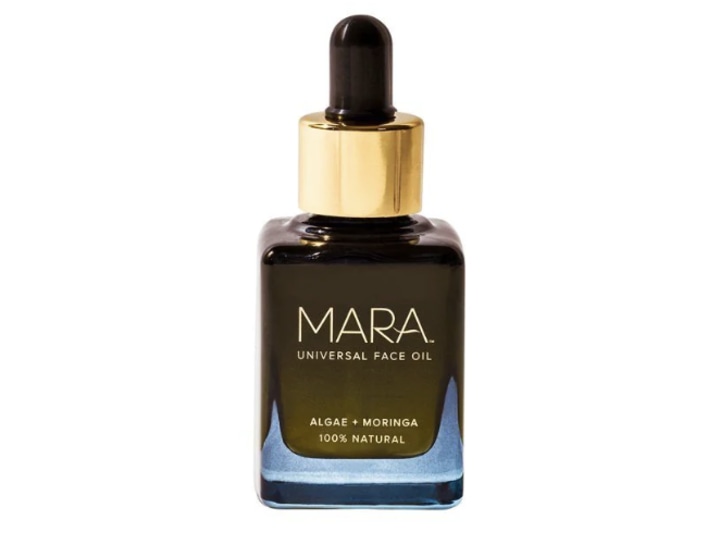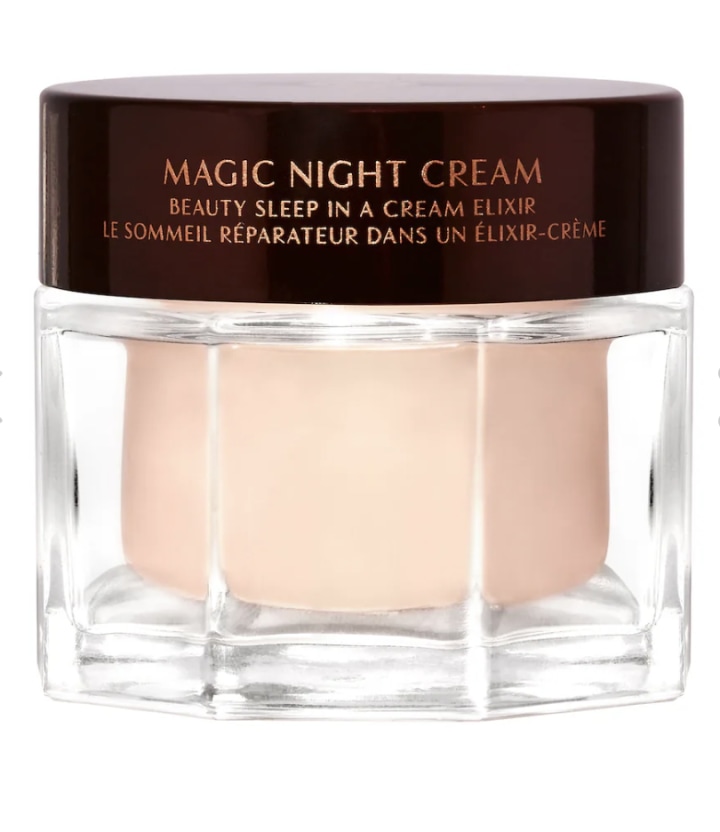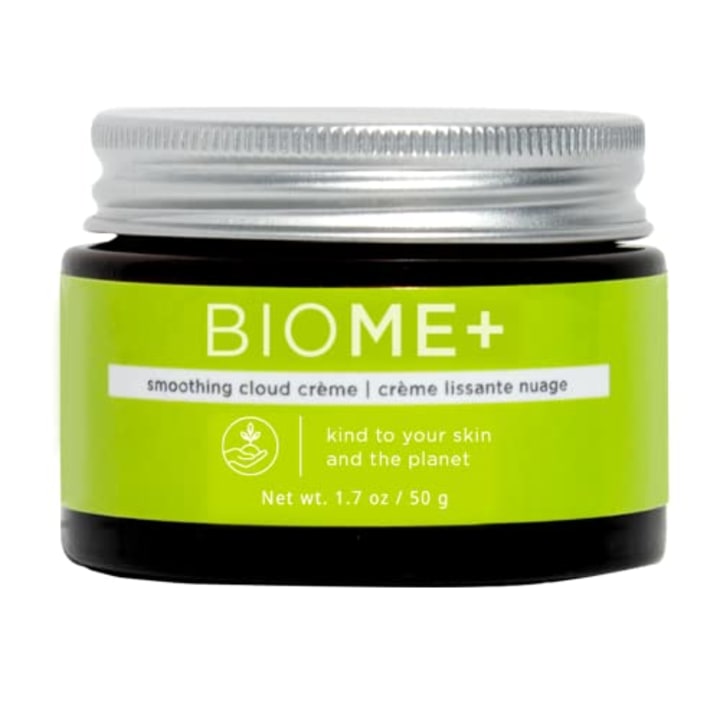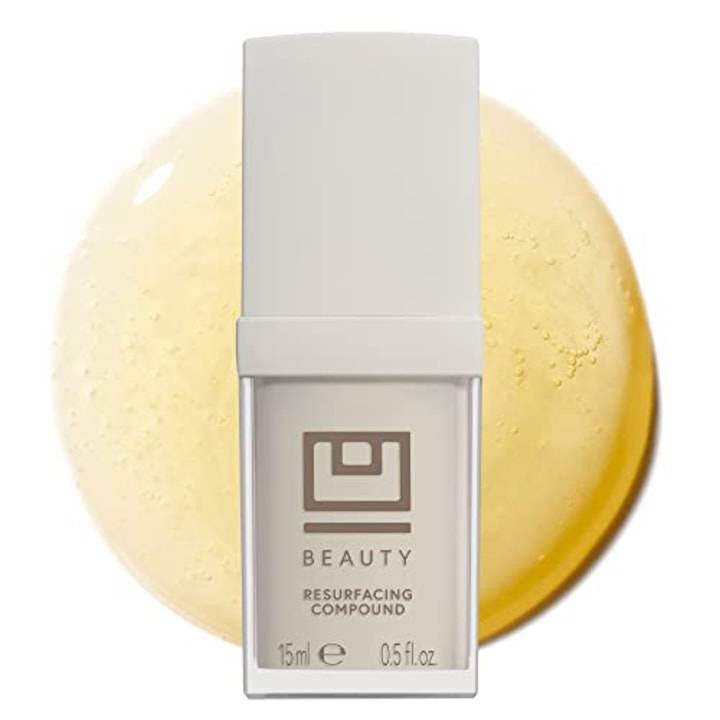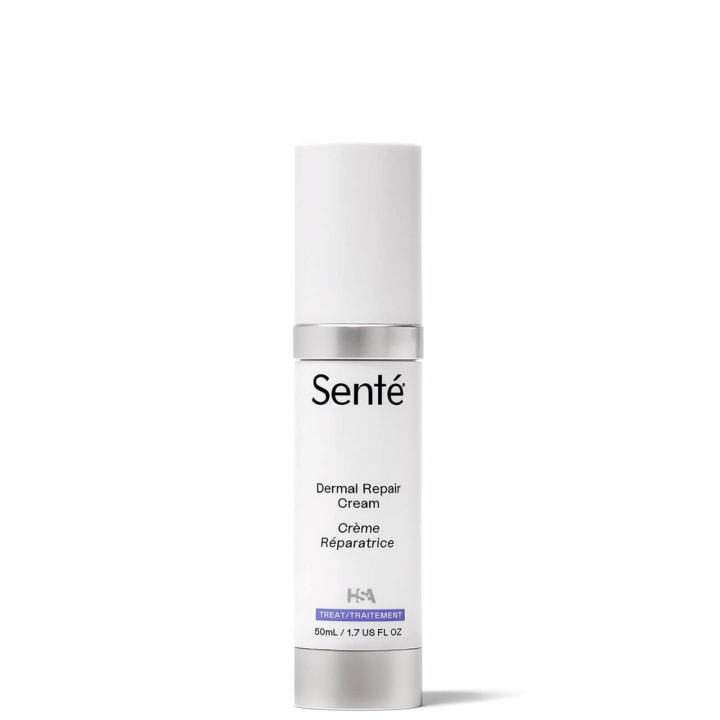Among skin care ingredients, vitamin E is a longtime staple. “It’s not particularly novel or buzzy like niacinamide, which has gotten a lot of attention lately, both by brand formulators and beauty media,” says Dr. Geeta Yadav, board-certified dermatologist and founder of Facet Dermatology. “That doesn’t mean it’s not effective, however.” In fact, its efficacy is actually what has kept vitamin E in skin care formulations for years, giving it its staying power.
SKIP AHEAD The best products for vitamin E in 2023 | How to shop for vitamin E | What does vitamin E do to skin? | Is vitamin E good as a face moisturizer? | Can you mix vitamin E with other ingredients? | Is vitamin E or C better for skin?
The body naturally produces vitamin E, which you may see referred to as tocopherol or alpha-tocopherol on ingredient lists. In skin in particular, it can help moisturize, defend against environmental damage and soothe inflammation, but its levels don’t stay consistent over time. “While vitamin E naturally occurs in our sebum, providing a built-in, skin-protective barrier, over time the production of the vitamin E decreases,” says Dr. Jeanette Graf, a board-certified dermatologist and professor at Mount Sinai School of Medicine in New York City. It offers other benefits for skin, too; it can help trap moisture in skin, soothe inflammation and defend skin from sun damage.
We asked dermatologists about what to look for and who should try it, as well as their recommendations for the best vitamin E products to buy. We also included top-rated products based on their input.
Our top picks
How we picked the best vitamin E product
The dermatologists we spoke with say that using skin care products with vitamin E can be an easy way to get multiple skin care benefits at once. When shopping for vitamin E products, they recommended considering the following factors:
- Category: Because of its inherent ability to moisturize, vitamin E is often found in lotions, creams, and face oils designed to do just that. It’s also popular in antioxidant serums, where it can offer protection against external aggressors like UV rays and pollution.
- Type of vitamin E: There are different forms of vitamin E, but alpha-tocopherol is the best one to look for on ingredient lists. It’s the most common form found in skin, and therefore “the ideal form,” says Graf.
- Other actives: Vitamin E is great on its own, but it’s even better when it’s paired with other ingredients like vitamin C, which brightens skin and protects against damage, and hyaluronic acid, which hydrates.
- Formulation: Pure vitamin E oil can potentially clog pores and feel greasy, which is why experts recommend looking for products where it’s blended into more sophisticated formulas. These lotions or creams may be faster to absorb and won’t leave behind a greasy residue.
The best products with vitamin E in 2023
Vitamin E can be helpful as a moisturizer, making it a good option for people with dry skin, according to our experts. It can also be soothing on sunburned skin, and can fight dark spots and wrinkles when used alongside other antioxidants in a serum. Below, we compiled expert-recommended moisturizers, serums, and oils that are rich in vitamin E. All of the products pair the ingredient with other actives like vitamin C and ferulic acid, which our experts say can help stabilize it and amplify its efficacy.
Malin + Goetz Vitamin E Face Moisturizer
This face moisturizer pairs vitamin E with sodium hyaluronate (a form of hyaluronic acid) and fatty acids. “The super lightweight cream is now a go-to during my morning routine — it instantly hydrates and strengthens my skin,” says NBC Select associate reporter Bianca Alvarez, who also likes that it soothes her skin after she’s been in the sun. It is fast absorbing and shouldn’t leave you feeling greasy or sticky, according to Malin + Goetz.
SkinCeuticals CE Ferulic
This serum is “considered the holy grail of antioxidant serums by most dermatologists due to its potency and efficacy,” says Yadav. You should apply it before your moisturizer and sunscreen. “It’s pricey, but it works,” says Dr. Corey L. Hartman, a board-certified dermatologist at Skin Wellness Dermatology. “It has a potent mix of vitamins C and E paired with ferulic acid, which helps the skin absorb the product more effectively,” he says.
Bio-Oil Skincare Oil (Natural)
This face and body oil is a favorite of mine; I used it throughout my pregnancy to keep my skin soft and supple. (It also helped alleviate my pregnancy itchiness, which, as I learned firsthand, can be tough to treat.) This version, which was released in 2021, is formulated without mineral oils, fragrance, preservatives, phthalates and parabens, and can help improve the look of scars and stretch marks, according to the brand.
Paula’s Choice C15 Super Booster
Hartman is a fan of this active ingredient-packed formula, which he considers a more budget-friendly alternative to the SkinCeuticals CE Ferulic serum. It combines vitamin E, ferulic acid and hyaluronic acid with 15% vitamin C. Together, they can help even out skin tone and smooth texture, according to the brand.
Inkey List B, C, and E Moisturizer
This moisturizer “combines the dream team of vitamin C and E with niacinamide, another antioxidant that helps combat discoloration, skin sensitivity and redness while balancing oil production,” says Yadav. Because of that, she says, it’s ideal for those who are prone to sensitivity and acne.
Mara Beauty Universal Face Oil
Especially helpful for people who experience dryness, this formula comes recommended by Yadav, who likes its lightweight, elegant texture. “It deeply nourishes the skin without making it greasy.” The vitamin E works alongside a host of other vitamins, minerals and phytonutrients to firm and smooth skin, according to the brand.
Charlotte Tilbury Magic Night Cream
Graf likes this overnight cream for its hydrating ingredients — vitamin E included. It helps “leave the skin looking refreshed and plump, [and] includes glycerin and retinol to boost these effects,” she says. The cream also comes in refillable packaging, and can increase hydration, smooth skin and improve firmness in as soon as eight weeks, according to the brand.
Image Skincare Biome+ Smoothing Cloud Crème
The combination of hyaluronic acid and vitamin E in this moisturizer smooths and hydrates skin without feeling heavy, says Graf. It’s also noncomedogenic, meaning it won’t clog pores, and contains fermented squalane, a type of lipid that helps support the skin’s microbiome, according to the brand.
U Beauty Resurfacing Compound
Not only does Graf like this for its vitamin E, but also because it has both vitamin C and retinol in its formula . “The vitamin C helps to even out skin tone and the retinol helps prevent fine lines and wrinkles, and improves the look of pores,” she says. It also uses a capsule technology, which delivers active ingredients directly to the most compromised areas of skin for targeted treatment (and therefore better results), according to the brand.
Senté Dermal Repair Cream
You can take advantage of vitamin E’s anti-inflammatory powers with this face cream that helps reduce redness. (It’s also accepted by the National Rosacea Society, meaning it’s safe to use with rosacea.) While it’s particularly helpful for sensitive skin, this lightweight moisturizer is also suitable for any skin type and doesn’t leave behind any oily residue, according to Graf. The vitamin E works alongside green tea extract (another antioxidant) to quell inflammation, according to the brand.
How to shop for vitamin E
While it’s possible to find vitamin E in skin care products like cleansers and face masks, vitamin E is most helpful when in formulations that harness its natural moisturizing properties. For that reason, Hartman looks for vitamin E that’s blended in oils and moisturizers. Vitamin E frequently appears in face serums, too, where you may see it paired with other antioxidants, such as vitamin C.
While pure vitamin E is easy to find as a pure oil or housed in a capsule (which you then break open and apply to skin), it’s generally not recommended by our experts. For one, they can “clog pores or even be irritating to some skin types, so you may want to avoid them if you have acneic or sensitive skin,” says Yadav.
On top of that, you could be missing out on benefits that come from pairing vitamin E with other ingredients. That’s because “vitamin E isn’t very stable on its own and needs the support of other ingredients to be its most effective,” says Yadav. For example, for ferulic acid, one study in the Journal of Investigative Dermatology found that it both stabilized vitamin E and doubled its protection against sun damage.
Our experts’ go-to combination is vitamins E and C. Together, they may “not only help reduce the appearance of sun exposure, but can help prevent future photodamage,” says Hartman. (In other words, they can offer extra protection against the wrinkles and dark spots that may arise from sun damage.)
Other duos can help on the moisturization front, too, according to Hartman. For instance, you can pair vitamin E with hyaluronic acid for an additional burst of moisture, he says.
What does vitamin E do to skin?
Vitamin E is well known for its nourishing properties. “It can help the skin stay moisturized, making it ideal for those with dry skin,” says Yadav. Research has found that it can trap water in the skin barrier, thus reducing dryness.
Besides keeping skin feeling soft and smooth, vitamin E can also be a powerful ingredient for addressing wrinkles and discoloration. “Vitamin E is an antioxidant, meaning it combats damage from free radicals, which can be caused by UV light, pollution and other environmental factors,” says Yadav. “In the skin, free radical damage can manifest as fine lines and wrinkles, skin laxity and hyperpigmentation.”
Because of these properties, “when [it’s] used as an active ingredient in skin care, you get a dual benefit: hydration and protection from free radicals,” says Hartman. That said: While vitamin E can defend skin from the sun, that doesn’t make it a substitute for sunscreen, according to Yadav. Rather, it supplements the benefits of SPF.
Finally, vitamin E has the ability to soothe inflammation, which can help skin heal, says Hartman; for example, it can help skin recover from eczema flare-ups or damage from a sunburn or wound. In fact, “there are several studies that have shown that vitamin E is helpful with atopic dermatitis, yellow nail syndrome and pustular psoriasis,” says Dr. Naana Boakye, a board-certified dermatologist at Bergen Dermatology.
Is vitamin E good as a face moisturizer?
Vitamin E can make for a great face moisturizer, since it’s naturally found in sebum, which is the waxy substance that serves as your skin’s built-in moisturizer. And because of its emollient properties — meaning it forms a layer over skin that helps trap in moisture and creates a smooth surface — it’s great for mature and dry skin, says Graf.
While most skin types can tolerate it, some should proceed with caution. If you have oily or acne-prone skin, you likely don’t need to add vitamin E into your skin care routine, says Hartman. And, although it’s very rare, it’s possible to have an allergy (like contact dermatitis, redness and itchiness) to vitamin E, says Boakye.
Can you mix vitamin E with other ingredients?
Nothing is off-limits when you’re using a topical vitamin E product, says Yadav. “Vitamin E is very mild and can safely be paired with other ingredients.” That includes actives like retinoids and alpha hydroxy acids.
Is vitamin E or C better for skin?
Rather than choosing between vitamins C and E, it’s better to use both in a single formula — since together, they can deliver more powerful benefits than either alone, according to all the dermatologists we spoke with. “Vitamin E and vitamin C work great together, specifically for UV damage,” says Boakye. “Vitamin E protects against free radicals and can help with the stability of vitamin C.” The good news: It’s generally easy to find them together, whether in a serum, moisturizer or face oil.
Meet our experts
At Select, we work with experts who have specialized knowledge and authority based on relevant training and/or experience. We also take steps to ensure all expert advice and recommendations are made independently and without undisclosed financial conflicts of interest.
- Dr. Geeta Yadav is a board-certified dermatologist and the founder of Facet Dermatology in Toronto. Her areas of research include atopic dermatitis, psoriasis and skin cancer
- Dr. Jeannette Graf is a board-certified dermatologist and professor at Mount Sinai School of Medicine in New York City. Her areas of research include skin aging and skin care product development.
- Dr. Corey L. Hartman is a board-certified dermatologist and founder of Skin Wellness in Birmingham. He has a special interest in treating skin of color, and his areas of research include lasers and injectables.
- Dr. Naana Boakye is a board-certified dermatologist and founder of Bergen Dermatology in Englewood Cliffs, NJ. She takes a holistic approach to skin health, factoring in lifestyle and overall wellness.
Why trust Select?
Deanna Pai is a freelance beauty writer and editor who has been covering beauty and health for more than a decade, including topics like skin care ingredients and sun protection. For this article, Pai spoke to four dermatologists to narrow down the best vitamin E products to shop this year, and highlighted their recommendations for the best options to consider.
Catch up on Select’s in-depth coverage of personal finance, tech and tools, wellness and more, and follow us on Facebook, Instagram, Twitter and TikTok to stay up to date.
Source: | This article originally belongs to Nbcnews.com
